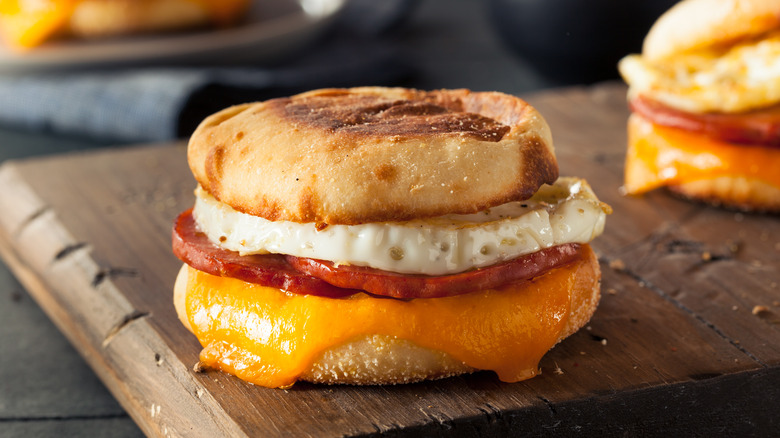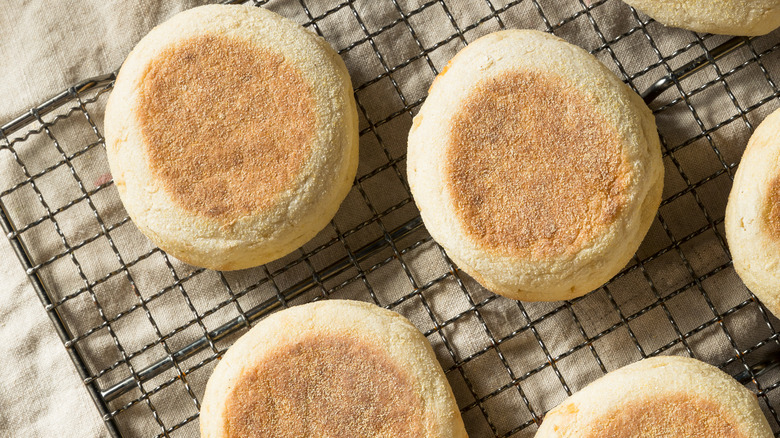The Murky Origins Of English Muffins
Depending on what part of the world you live in, your mind might summons a specific image when you hear the word "muffin." To some, they are a breakfast-slash-brunch staple that makes for a solid base for dishes like eggs Benedict. To others, they are cakes in the guise of breakfast food. And then there are those who might believe muffins and cupcakes are the same (News flash: They are not). Maybe someone's muffin experiences barely go beyond McDonald's Egg McMuffins.
People are probably familiar with two major categories of muffins. There's a sweet variety that comes in decorative papers with cake-like quality minus the decadence. That's the American kind, according to Cake Baker. Then there are the flat ones that are rolled in semolina flour and have a layer of crispiness. These are English muffins (via King Arthur Baking). Just as American muffins are sometimes confused with their bougie cousin, i.e. cupcakes, people might confuse English muffins with crumpets despite the notable differences in texture and taste.
Muffins, no matter the type, are tasty and among the most popular baked items of all time. But after all the time they've been around, it might seem like their origins should be clear. However, there are conflicting stories about whether the buttery English muffin really came from England.
Accounts disagree on whether English muffins are really English
According to a famous origin story, in 1874, a British baker named Samuel Bath Thomas from Plymouth moved to New York City (via Gold Medal Bakery). Six years later, he opened up his first bakery there and baked a version of crumpets that were thinner. Thomas trademarked them as "English muffins" in 1894. The name "English muffin" was coined in America, but English people may have been making the bready treat (or something similar) much earlier. In fact, citing the Oxford Companion to Food, Food TImeline states that a recipe was published in 1747's "The Art of Cookery Made Plain and Easy" by Hannah Glasse.
According to the Food Timeline, men in Victorian England would roam the streets with baskets of muffins and ring handbells to attract customers. However, the word "muffin" could have referred to various bread-based foods. Apparently, the bells were a nuisance for many, so in 1840, the Act of Parliament reportedly imposed a ban on them. There are no muffin men on Drury Lane today to show us exactly what they sold, but people still sing of them in the English rhyme "The Muffin Man." A version of it initially appeared in an 1819 British manuscript called "Life High and Low." Ironically, they wouldn't have been selling "English muffins" in England. Per the Los Angeles Times, British people just call them "muffins." Now, bake of that what you will.

